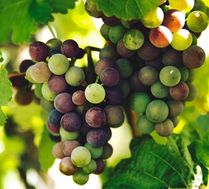Laurie Anne Walden, DVM  The Halloween safety post touched on treats that can be hazardous to pets. Here’s a more detailed list of common foods that are dangerous for dogs and cats. Alcohol, raw bread dough, and raw pizza dough These foods contain ethanol, a type of alcohol. Pets are most often exposed by accidentally consuming alcoholic beverages. Toxicosis has also been reported in dogs who ate raw yeast dough or rotten apples. Ethanol consumption can cause vomiting, dehydration, sedation, coordination problems, low body temperature, difficulty breathing, coma, and death. Uncooked bread or pizza dough can also cause life-threatening bloat. Yeast continues to rise in the stomach, filling the stomach with a large mass of dough in addition to the gas given off by fermentation. Chocolate, coffee, and other caffeine-containing products The toxic ingredients of chocolate are caffeine and theobromine, which are both in a class of compounds called methylxanthines. Other products that contain methylxanthines (coffee, black tea, soft drinks, mulch made of cocoa bean shells, some herbal supplements, and some human medicines) are also dangerous to animals. Low doses of methylxanthines cause vomiting, diarrhea, restlessness, and increased thirst. High doses cause heart rhythm problems, seizures, coma, and death. Chocolate consumption is the most common cause of methylxanthine toxicosis in dogs. In general, the darker and more bitter the chocolate, the higher the methylxanthine content and the higher the risk. Grapes, raisins, currants, and sultanas Grapes, either fresh or dried, can cause life-threatening kidney failure in dogs. Although some dogs can eat grapes and raisins without showing any symptoms, others develop kidney failure after eating only a few. Because we do not yet know why some dogs are sensitive, it’s best to avoid giving dogs any grapes or their dried versions, including raisins in baked goods. In susceptible dogs, grape consumption causes vomiting, diarrhea, loss of appetite, and belly pain. Dogs can develop kidney failure and die within 3 days of eating grapes or raisins. Hops Home beer brewing can expose pets to hops, which are used in the brewing process. In dogs, both fresh and spent hops cause a dangerous increase in body temperature called malignant hyperthermia. Signs include anxiety, increased heart rate, vomiting, panting, elevated body temperature, seizures, and death. Macadamia nuts Dogs who eat macadamia nuts may develop vomiting, weakness, loss of coordination, lameness, tremors, and high body temperature. No deaths have been reported. Onions, garlic, leeks, and chives These vegetables and other members of the Allium genus contain compounds that irritate dogs’ and cats’ digestive tracts and damage their red blood cells. Cats are especially sensitive to the toxic effects. Consumption can cause vomiting, diarrhea, belly pain, loss of appetite, anemia, and jaundice. Be sure to check the ingredient lists of any human foods you give your pets. Some varieties of chicken baby food, for example, contain onion or garlic for flavor. Xylitol sweetener Xylitol is an artificial sweetener used in sugarless gum, sugar-free candy, breads, other baked goods, and some human dental products. Drinking water additives for pet dental care may also contain xylitol. Although xylitol is safe for most species, in dogs it interferes with insulin metabolism and can cause a life-threatening drop in blood sugar levels. Dogs that consume xylitol can also develop liver failure. The first symptom of toxicosis is usually vomiting. Other signs include weakness, loss of coordination, seizures, jaundice, and coma. Other foods Food ingredients that aren’t good for people aren’t good for pets either. These include bones (choking, perforation of the digestive tract), moldy food (mycotoxins), raw meat or eggs (bacterial contamination), and rotten fruit (ethanol). High-fat food or indiscriminate eating can also cause inflammation of the pancreas in dogs. Sources: Cortinovis C, Caloni F. Household food items toxic to dogs and cats. Front Vet Sci. 2016;3:26. Food hazards. Merck Veterinary Manual website. Accessed November 10, 2017. People foods to avoid feeding your pets. ASPCA Animal Poison Control website. Accessed November 10, 2017. Photo by Rohit Tandon Comments are closed.
|
AuthorLaurie Anne Walden, DVM Categories
All
Archives
June 2024
The contents of this blog are for information only and should not substitute for advice from a veterinarian who has examined the animal. All blog content is copyrighted by Mallard Creek Animal Hospital and may not be copied, reproduced, transmitted, or distributed without permission.
|
- Home
- About
- Our Services
- Our Team
-
Client Education Center
- AKC: Spaying and Neutering your Puppy
- Animal Poison Control
- ASPCA Poisonous Plants
- AVMA: Spaying and Neutering your pet
- Biting Puppies
- Boarding Your Dog
- Caring for the Senior Cat
- Cats and Claws
- FDA warning - Bone treats
- Force Free Alliance of Charlotte Trainers
- Getting your Cat to the Vet - AAFP
- Holiday Hazards
- How To Feed Cats for Good Health
- How to Get the Most Out of your Annual Exam
- Indoor Cat Initiative - OSU
- Introducing Your Dog to Your Baby
- Moving Your Cat to a New Home
- Muzzle Training
- Osteoarthritis Checklist for Cats
- What To Do When You Find a Stray
- Our Online Store
- Dr. Walden's Blog
- Client Center
- Contact
- Cat Enrichment Month 2024
|
Office Hours
Monday through Friday 7:30 am to 6:00 pm
|
Mallard Creek Animal Hospital
2110 Ben Craig Dr. Suite 100
|
Site powered by Weebly. Managed by IDEXX Laboratories

 RSS Feed
RSS Feed